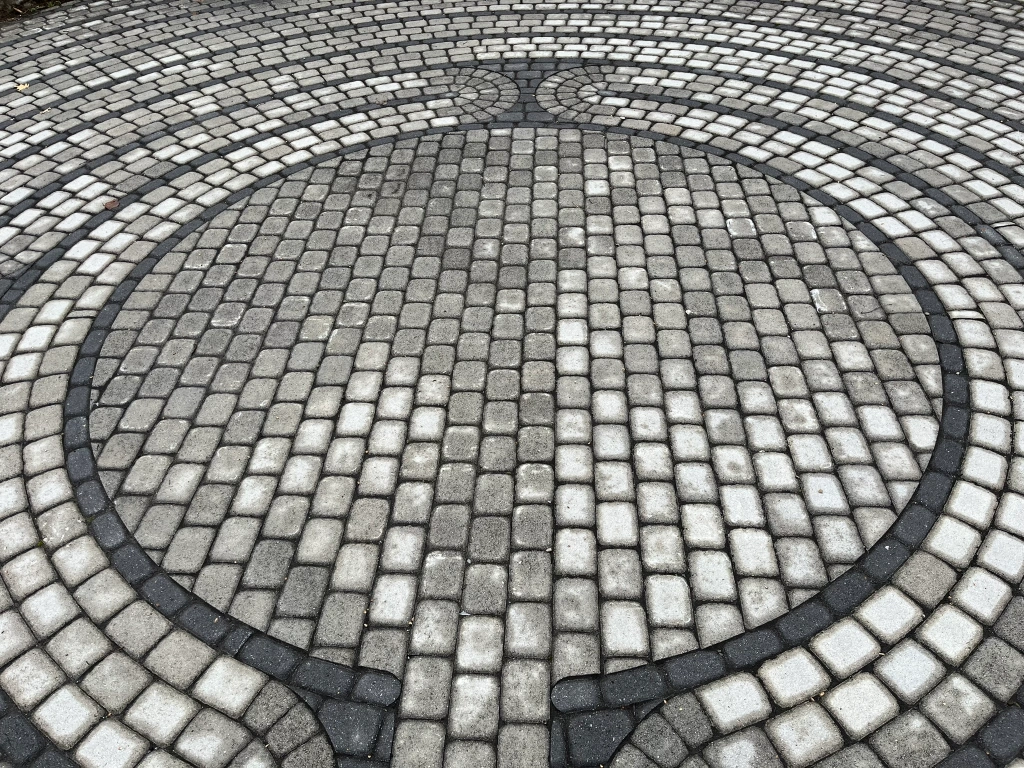A few days ago, I was at a Zoom meeting with other pastors in my synod. As part of the opening devotion, the meeting facilitator asked the question, “How do you want to be remembered?” Many people gave answers like, “I want to be remembered as someone who loved God and did my best.” Or, “I want to be remembered as someone who showed grace.” You know, good things like that. Some people answered from the perspective of how they’d be remembered by their congregation after they leave; others answered from the perspective of how they’d be remembered by other people after they die.
My answer was different, and it’s stayed with me since. I knew this was something I had to process a little more. I said, “There are certainly things I’ve tried to teach and model that I hope people remember after I’m gone, but I don’t think I really want them to remember me at all!”
I meant it, both from the perspective of my congregation after I leave, and from the perspective of people after I die. And what I don’t know is whether this is a healthy way to think, or a sign of the same illness that has led me to suicidal ideation in the past.
I remember when I left my last congregation to come to Prince of Peace. I remember thinking that I’d be little more than a footnote in their history. Congregations tend to, for better or worse, mark their history in terms of the pastors who serve them. “During Pastor Smith’s tenure, we built our education wing. During Pastor Jones’ time here, we started our daycare program.” When I left that church, I thought about the legacy I was leaving there, and none of it was the sort of thing that would work in a history of the church. And I was fine with that — if my legacy was that a few people expereinced God’s grace in a deeper way, and a few others learned how to share that with their own friends, that was more than enough for me. And I really didn’t care if even those people remembered that I had helped them get there. I was happy to just walk away, knowing I’d provided something.
In fact, I get uncomfortable at the thought that anyone at that church is talking about me at all right now, whether that conversation is positive, negative, or neutral. I guess I don’t like the idea that I’ve made a difference. I’m reminded of these words from Paul:
When I came to you, brothers and sisters, I didn’t come preaching God’s secrets to you like I was an expert in speech or wisdom. I had made up my mind not to think about anything while I was with you except Jesus Christ, and to preach him as crucified. I stood in front of you with weakness, fear, and a lot of shaking. My message and my preaching weren’t presented with convincing wise words but with a demonstration of the Spirit and of power. I did this so that your faith might not depend on the wisdom of people but on the power of God.
1 Corinthians 2:1-5 (Common English Bible)
So here’s my question for myself: am I trying to follow Paul’s example, and allow myself to fade into the background so that God’s power can be more clearly revealed? Or am I rather coming at this from a place of fear, fearful of being remembered because perhaps I’ve caused more trouble than good? Would people remembering me and thinking about me, even if their memories are positive, just distract from what’s more important? Or am I scared that anything I do is tainted, and I just want to pass through unobserved?
Over my years of working with grieving families, there have been a number of cases where the loved one who died had requested that there be no funeral or any service whatsoever. I have always thought that was a very cruel request, because it puts your family in a terrible position. They have to make a choice. Either they go against your wishes, which is something that is terribly painful to do, particularly in those first raw days and weeks after your death. Or they follow your wishes, and thereby miss a very important part of the grieving process. I’m not saying that a Lutheran funeral is the only way to process grief, but I do think that having some sort of ritual is crucial, and without it grief takes longer to work through. I haven’t blatantly tried to change people’s minds when they’re in this position, but I’ve always supported them if they made the decision to do some sort of service, whatever that might be.
Anyway, I think right now I’m understanding where that impulse comes from, the impulse to tell your family that you don’t want any service or anything after your death. Or at least, I’m undersatnding where it might come from. If I really don’t want to be remembered after I die, then wouldn’t I be tempted to tell my family not to remember me?
And furthermore, whenever I’ve been actively suicidal, isn’t one of the strongest things that keeps me from following through with it the thought of how much my suicide would hurt my family? Don’t I often wish in those moments that I could just have never been born, and thus my absence wouldn’t cause any pain?
It seems like my desire not to be remembered is a desire to have a level of control over the world that is not mine to have. The truth is, people will remember me. The truth is, my death (whenever it happens) will cause emotions to come up in whatever family members and friends I have at that point. (Probably negative emotions, but who knows?) I think I need to accept this. Accept that I am really part of this world, and I can’t undo that. I can’t control the way other people respond to me. I can’t control the way they continue to respond to me even after I’m gone. I can just do the best I can right now.
So, yeah, if I had my druthers, nobody would remember me when I’m gone. But guess what? This is one case when I don’t get my druthers. And it’s okay. I don’t have to strive to be remembered, or not to be remembered. And I really don’t have to figure out why I don’t want to be remembered. Maybe it’s connected to my hope that there’s no afterlife, which I wrote about a few years ago — I don’t know.
Eh. Just some thoughts. It’s okay if you don’t remember any of this tomorrow.
Image by Tomislav Jakupec from Pixabay




Leave a comment